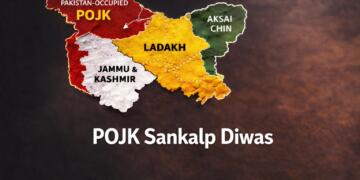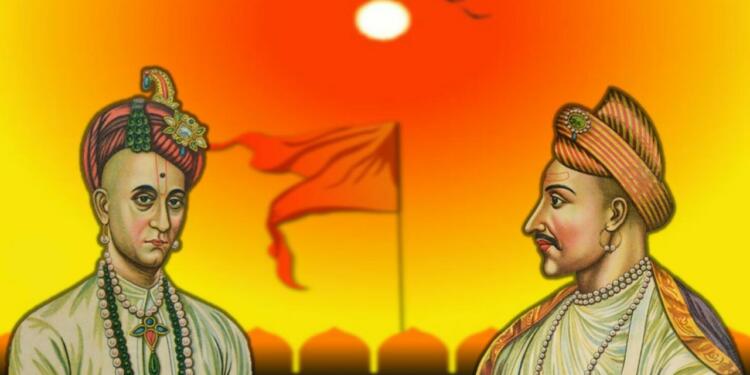A long time ago, when a nationwide revolt against Aurangzeb broke out from corner to corner, one person took full advantage of this opportunity. He not only participated in this war but also took the resolution, “O Hindavi Swarajya Shri Harichi Ichcha!—that is, the freedom of India is the best wish of God. But taking this pledge, Chhatrapati Shivaji Maharaj would not have imagined even in his dreams that such an inter-war would take place among his descendants, which would be similar to the Mahabharata, and in which only India’s self-respect would be defeated.
Read in this article the story of the internecine war between Raghunath Rao and Madhavrao, which could have been stopped but consumed the Maratha Empire. So let’s start without delay.
Raghunath Rao: once the pride of the Maratha Empire
In the history of Marathwada today, no one looks at Raghunath Rao with respect. Everyone knows him for the moment when he killed his own nephew, Narayanrao, in his desire to get power.
But was Raghunath Rao so devious from the beginning? Probably not, because when Bajirao died untimely in 1740, the biggest question facing the Maratha Empire was: who would carry on his legacy? Naturally, his eldest son, Balaji Bajirao, was chosen, and what his younger brother Chimajirao did for Bajirao, his younger brother Raghunath Rao did for Balaji Bajirao, i.e., Nanasaheb Peshwa.
But Raghunath Rao was ten steps ahead of both his father and uncle in diplomacy and warfare. He took strong steps towards reviving a united India, and the forces under his leadership in Bengal had created havoc among the Islamic invaders there.
Not only this, he extended a hand of friendship to communities with whom it was almost impossible to even talk, such as Sikhs and Jats. Very few people know that when the Afghan invaders took control of Lahore, a combined army, which included both Sikhs and Marathas, launched an attack to free it. Not only this, Raghunath Rao played an important role in re-establishing a united India until the “Attack from Cuttack”.
Read more: 100 years of Hindustan Republican Association: A Journey of Courage and Conviction
One decision ruined everything
But then how did such a skilled and powerful warrior suddenly become an enemy of the Maratha Empire? The reason was Nanasaheb Peshwa. This was the time when Delhi was invaded by the Rohilla community, and in this episode, Nanasheb Peshwa defeated the combined forces of the Mughals and Ruhillas so much that they had no option but to surrender. Now the Maratha Empire had made almost the whole of India its own, and the next target was the Afghans.
But this fight was not so simple. As soon as Raghunath Rao left, the Ruhilla invaders again showed their treacherous side and brutally murdered Dattaji Shinde in 1760. He invited the Afghan ruler Ahmad Shah Abdali to attack India. As soon as the Marathas learned about this, they started planning without delay. Raghunath Rao knew from his own experience that it would take a lot of planning to defeat Abdali, as he was no mean invader.
But the then Peshwa’s Diwan, Sadashiv Rao Bhau,” turned down this proposal. Not only this, but Sadashivrao “Bhau” was also made the Maratha army chief, despite having no knowledge of the geography or political equations of North India. Due to this incomprehension of Nanasaheb Peshwa, the Maratha forces, despite having the opportunity, could not fully demonstrate their capabilities, and they had to face defeat in the third battle of Panipat.
Read More: The truth of Qutub Minar
There is no medicine for delusion
Undoubtedly, injustice was done to Raghunath Rao, but no one knew when this injustice turned into frustration. Raghunath Rao considered the entire Maratha Empire as his enemy and slowly started conspiring to usurp it. But this thing was giving a lot of trouble to one person, and that was Madhavrao Bhatt, his own nephew.
Madhavrao was neither very influential nor did he have much knowledge of governance. They didn’t even have any lust for power. But the third battle of Panipat changed everything.
Along with Sadashiv Rao Bhau, his own elder brother, Vishwasrao, also died, and at the age of just 16, Peshwa Madhavrao had to take over the rule of the Maratha Empire. Madhavrao was full of mature and efficient leadership like his ancestor Peshwa Bajirao. He was well aware that only capable leadership could bring back the lost respect for Hindavi Swarajya.
Also read: Malik Ambar and the Maratha Connection: A Tale of Strategic Alliances
Under his leadership, for the first time, this act established that whoever proved corrupt in his actions or whoever committed treason would be punished publicly, no matter how influential and powerful he was. He gave an example of this in his own family when he also decided to put his own uncle Raghunath Rao in prison if necessary.
Now, while Peshwa Madhavrao was alive, Raghunath Rao could not even make a dent in the Maratha empire. In this, advisors like Mahadji Shinde and Nana Fadnavis supported him a lot. But the untimely death of Peshwa Madhavrao gave new hope to Raghunath Rao, and Narayanrao’s generous nature got him down.
In 1773, Raghunath Rao conspired to obtain the title of Peshwa and brutally murdered Narayanrao at Shaniwar Wada, the Peshwa’s official residence in Pune. But he could not take advantage of the power, because when Mahadji Shinde learned about this, he took immediate steps to take Pune under his control.
Raghunath Rao sought help from the British, which led to the First Anglo-Maratha War, but not only did the Marathas emerge victorious, but Raghunath Rao was sentenced to life imprisonment and died in 1783 while serving his sentence. It is said that in the place where he died, his spirit still resides there, just like the spirit of Narayanrao wanders in Shaniwar Wada.
Read more: Murud Janjira Fort: A Testament to India’s Maritime History
Under the leadership of Peshwa Madhavrao Bhatt, diplomats like Nana Fadnavis, judges like Ram Shastri Prabhune, and generals like Mahadji Shinde were given a lot of powers, due to which the Marathas again hoisted their glories in a few years. During the reign of Peshwa Madhavrao Bhatt, he regained more of the land that the Maratha Empire had lost. As long as he was alive, the British Empire could not spread its wings beyond Bengal.
Imagine now if, instead of conspiring against his own family, Raghunath Rao had given young Madhavrao the knowledge of his vast experience and war strategy like Chanakya. Perhaps the British would not have set their feet in India, and before time India would also have been a democratic country, united, and prosperous in every way.
Support TFI:
Support us to strengthen the ‘Right’ ideology of cultural nationalism by purchasing the best quality garments from TFI-STORE.COM

























